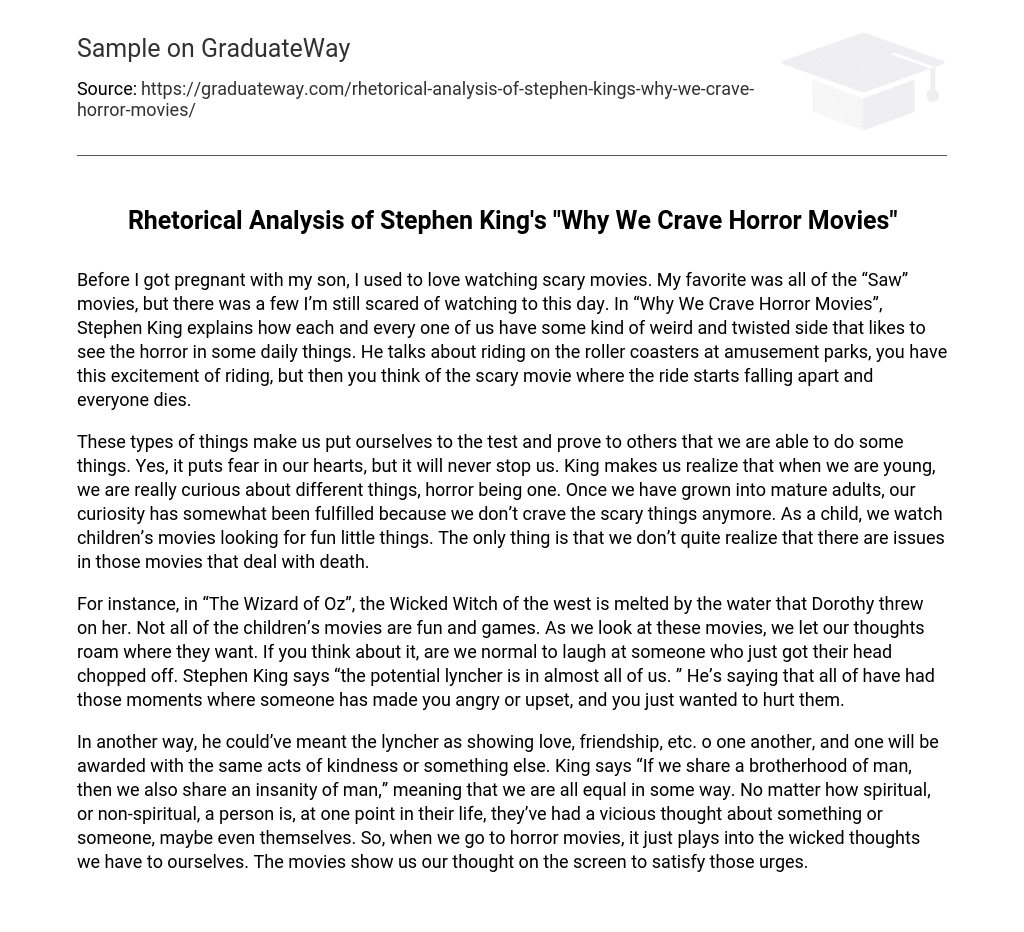Before becoming pregnant, I used to find pleasure in watching horror movies such as the “Saw” series. Nevertheless, there are still a few films that continue to scare me today. In his essay titled “Why We Crave Horror Movies,” Stephen King delves into our natural captivation with all things gruesome and how it manifests in different aspects of our lives. He uses the analogy of riding roller coasters at amusement parks, where the exhilaration of the ride is often intertwined with contemplating the catastrophic scenarios portrayed in horror films.
These experiences test and demonstrate our abilities, despite instilling fear. They will never hinder our progress. King highlights that as young individuals, we possess a strong curiosity towards various topics, including horror. However, as we mature, this curiosity diminishes, and we no longer seek out frightening things. During childhood, we enjoy children’s movies for their entertainment value. However, we often fail to recognize the presence of death-related themes within these films.
In the movie “The Wizard of Oz,” the Wicked Witch of the West is liquified by the water that Dorothy threw on her. Not all children’s films are lighthearted and harmless. When examining these movies, we allow our minds to wander freely. It is worth considering whether it is socially acceptable to find amusement in someone’s decapitation. According to Stephen King, “the potential lyncher exists within nearly all of us.” He implies that we have all experienced moments of anger or resentment towards someone, where we harbored a desire to cause them harm.
The lyncher could also be seen as a representation of love, friendship, and other types of mutual support. By treating each other with kindness and support, we can expect to receive the same in return. King’s quote, “If we share a brotherhood of man, then we also share an insanity of man,” highlights that we are all equal in some way. Regardless of one’s level of spirituality or lack thereof, everyone has entertained negative thoughts at some point in their life towards something or someone, possibly even themselves. Therefore, when we watch horror movies, it gratifies our inner wicked thoughts by displaying our own cognitions on the screen to fulfill those desires.





